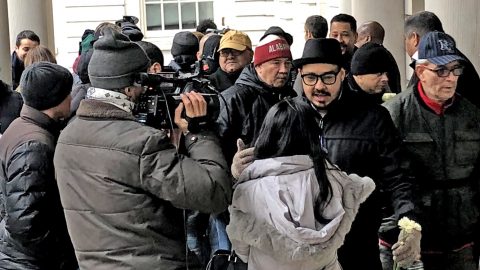Running a business is always a challenge, particularly when it comes to juggling employee requests to modify work schedules, alter working conditions, or take time off due to personal reasons. Employers must constantly balance between accommodating the personal needs of their employees on the one hand, and ensuring that there is adequate staffing to meet business needs on the other. Complicating matters, employers must stay abreast of, comply with, and adjust their operations to a multitude of laws that are constantly being enacted or modified by all levels of government.
The New York City Council in particular has been actively engaged in strengthening and expanding laws that protect individuals employed within the city. Among the bills recently passed into law by the Council is an amendment to the New York City Human Rights Law (NYCHRL) requiring employers engage in a “cooperative dialogue” with employees who request an accommodation.
Overview of the New York City Human Rights Law
The NYCHRL prohibits unlawful discrimination in employment based upon a number of protected categories, including age, race, creed, color, national origin, sexual orientation, military status, sex, marital status and disability. Under certain circumstances, the law requires employers provide a “reasonable accommodation” in the form of a change to the employee’s work schedule or duties, unless doing so would create an undue hardship for the employer. These circumstances include accommodations occasioned by the employee’s (a) disability; (b) pregnancy, childbirth or related medical condition; (c) religious observance; and (d) status as a victim of domestic violence, sexual violence, or stalking.
The “Cooperative Dialogue” Requirement
In an ideal world, every employer would accommodate every employee’s request for an accommodation under the NYCHRL. However, in reality, not only are many legitimate employee requests denied, there are some employers that fail to adequately consider requests, or do so in a lackadaisical manner. In an effort to combat these problems, the City Council recently enacted legislation that forces the employer to discuss the accommodation request with the employee effective October 16, 2018. This amendment to the NYCHRL requires employers that receive an accommodation request, or who even think an accommodation may be needed (without the employee asking), engage the employee in a “cooperative dialogue.” In layman’s terms, this means that the employer must actively discuss with the employee what it is that the employee may need (e.g. schedule change, time off, etc.), why (e.g. due to disability or any of the other circumstances outlined above), and any potential alternatives to a requested accommodation (such as a reduced schedule instead of time off).
Presumably, the dialogue is not necessary if the employer immediately agrees to the request. However, the request and outcome should still be documented as discussed below. As for requests that are excessive or unreasonable, the cooperative dialogue must still take place before a final determination is made. The whole point of this amendment to the law is that the parties need to speak before a decision denying an accommodation is made. If there is no discussion, there is no way of knowing if a compromise could have been reached.
Potential Pitfalls to Avoid
Employers are well advised to use restraint and consider all possible alternatives before taking the position that a requested accommodation constitutes an undue hardship. Employers tend to get into trouble under this law by brushing off accommodation requests that can easily be fulfilled in some other way.
Likewise, employers are advised to be very, very careful when engaging in the cooperative dialogue to make sure other laws are not violated in the process. For example, while a request to work part time might not constitute a reasonable accommodation under the NYCHRL, the employer might have to grant the time under the “reduced schedule” and “intermittent leave” provisions of the Family Medical Leave Act. Laws can also be violated by seeking too much information from the employee. There are various state and federal laws that relate to the confidentiality of employees’ medical information. You should only ask for information that directly relates to an employee’s limitations in performing essential duties of his or her job when evaluating an accommodation request. For example, you can ask an employee undergoing treatment for a pinched nerve who seeks a reduced schedule whether he can drive if that’s one of his job responsibilities. You can’t ask him whether he has high blood pressure.
Once the cooperative dialogue process has been completed, the employer must issue a written determination stating whether the requested accommodation has been granted or denied. Be sure to keep a copy in the employee’s file, together with a copy of the request (if written) and any related documentation.
Conclusion
The NYCHRL is one of the most liberal and potent human rights laws is the Country, with equally potent monetary and other penalties for employers who deny their workers their rights. While this amendment technically does not go into effect until October 16, 2018, employers should use the next few months to make sure their supervisory and human resources personnel are fully familiar with the NYCHRL’s new cooperative dialogue requirement, and update their employment manuals and handbooks to alert employees to their rights and obligations when requesting an accommodation.





